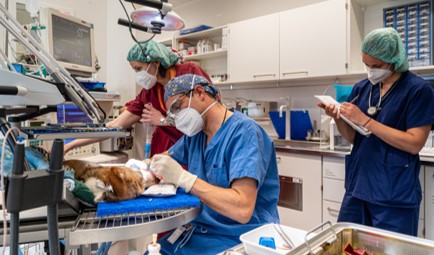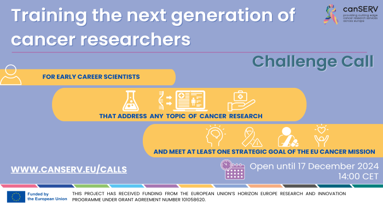Projects (by BBMRI.at partners)
BBMRI.at members and their biobanks are participating in numerous research projects and have received various (local, national, EU) grants
Examples of biobanking related research project to which BBMRI.at partners contribute(d):
EvolveBBMRI
Accelerating Datafication for Support of EU Health Priorities, Greening of Biobanks and Integrated Approach to “One Health”
Smart FOX
Smart and Federated Open data eXchange of citizen-based data donations for clinical research
QCI-CAT
QCI: Proof of Concept – Secure Connectivity Austria
GenomeMET
Using next generation sequencing to design precision medicine for cancer treatment
EUCAIM
Building a Data-Driven Future for Cancer Care
ONCOSCREEN
A European shield against colorectal cancer
MICROBE
The Microbiome Biobanking (RI) Enabler
DIOPTRA
Early dynamics screening for colorectal cancer via novel protein biomarkers reflecting biological initiation mechanisms
SCIBIOEU
SCIence outreach: The example of BIObanks in EUrope
canSERV
Providing Cutting Edge Cancer Research Services Across Europe
ISIDORe
Integrated Services for Infectious Disease Outbreak Research
HEAP
Human Exposome Assessment Platform
IDE@S
Innovative Data Environment @ Styria
BIGPICTURE
European Platform & central repository for digital pathology
SARS-CoV-2 / COVID-19
Instand-NGS4P
Integrated and Standardized NGS Workflows for personalised therapy
CY-Biobank
Center of excellence – biobanking and the Cyprus human genome project
EASI-Genomics
European Advanced InfraStructure for Innovative Genomics
METAFORIS
Making Europe through and for its research infrastructures
HDHL-INTIMIC
A Healthy Diet for a Healthy Life – Knowledge Platform on Food, Diet, Intestinal Microbiomics and Human Health
ERINHA-Advance
Advancing European Research Infrastructure on Highly Pathogenic Agents
CONCEPTION
Continuum of Evidence from Pregnancy Exposures, Reproductive Toxicology and Breastfeeding to Improve Outcomes Now
EJP RD
European Joint Programme on Rare Diseases
EOSC-LIFE
Providing an open collaborative space for digital biology in Europe
HRSM Inter-university infrastructure for digital pathology
“Digital transformation in higher education”: Joint platform of Austrian medical universities for interactive image-based teaching
SPIDIA4P
SPIDIA for Personalized Medicine – Standardisation of generic Pre-analytical procedures for Invitro DIAgnostics for Personalized Medicine
CODEX4SME
Companion diagnostics expedited for small and medium-sized businesses
ADOPT BBMRI-ERIC
ImplementAtion anD OPeration of the gateway for healTh into BBMRI-ERIC
CORBEL
Coordinated Research Infrastructures Building Enduring Life-science services
RD-CONNECT
An integrated platform connecting registries, biobanks and clinical bioinformatics for rare disease research
BBMRI-LPC
Biobanking and Biomolecular Resources Research Infrastructure – Large Prospective Cohorts
B3AFRICA
Bridging Biobanking and Biomedical Research across Europe and Africa
Projects Details
EvolveBBMRI
Accelerating Datafication for Support of EU Health Priorities, Greening of Biobanks and Integrated Approach to “One Health”

The EvolveBBMRI project is coordinated by the Biobanking and BioMolecular resources Research Infrastructure – European Research Infrastructure Consortium (BBMRI-ERIC) in partnership with ten member states and structured in four community-driven pillars: Acceleration of datafication of biobanks and biomolecular resources to enable reproducible advanced medical research in support of EU health priorities; teaming with industry towards greener biobanking;
Long-term sustainability measures for BBMRI addressing also RI landscape gaps; strengthened approach for career paths, training and outreach activities to maximise impact. Activities and outputs within its four pillars will increase the long-term sustainability of BBMRI-ERIC and contribute to a better structured and strengthened European research infrastructure landscape. The project will also ensure the implementation of specific results for six key target groups: Scientific community (Universities, Hospitals, Research Institutes); BBMRI-ERIC National Nodes, Biobanks in Europe and beyond; industry and private foundations; policy- and decision-makers at national and European levels; European and International networks; donors, patients and citizens.
HORIZON-INFRA-2023-DEV-01-03 – Consolidation of the RI landscape – Individual support for evolution and long-term sustainability of pan-European research infrastructures
RIA – Research and Innovation Actions
36 months
01 January 2024
101131701
€ 3,999,955
€ 2,146,543
Medical University of Graz
Smart FOX
Smart and Federated Open data eXchange of citizen-based data donations for clinical research
Many clinical research activities in Austria face challenges due to non-linkable data sources. Data are often not made available for collaborative use due to data protection or business protection concerns. However, the true value of meaningful applications often lies in the networking of data. The COVID-19 pandemic has highlighted the difficulty of networking healthcare-related real-world data in Austria and the urgent need for a more efficient and resilient approach. The complexity of the federal healthcare system, with its different financing modalities, responsibilities, and lobbies, contributes to the problem. From an institutional perspective, analyzing data along a patient’s continuous healthcare journey involving multiple healthcare providers creates blind spots and missing links. Recognizing the pivotal role of citizens/patients in healthcare and the clinical research domain, Smart FOX’s proposal aims to develop concepts, methods, and tools that enable citizens/patients to donate their health data for clinical research. Over the past decade, Austria has invested significant efforts in standardization and harmonization activities by implementing its national electronic health record system, Elektronische Gesundheitsakte (ELGA). Smart FOX aims to leverage this competitive advantage by incorporating citizen/patient-based health data donations to enhance efficiency in clinical research.
24 months
01 January 2024
Medical University of Graz, Medical University of Vienna, University of Vienna
AIT (Austrian Institute of Technology GmbH), Dedalus HealthCare GesmbH, Probando GmbH, Gesundheit Österreich GmbH, Siemens Healthcare Diagnostics GmbH, EIT Health Austria GmbH, IT-Services der Sozialversicherung GmbH, UMIT TIROL, telbiomed Medizintechnik & IT Service GmbH, Survivors Österreich, Ludwig Boltzmann Gesellschaft GmbH, fragmentiX Storage Solutions GmbH, DIO (Data Intelligence Offensive), Tirol Kliniken GmbH
QCI-CAT
QCI: Proof of Concept – Secure Connectivity Austria

QCI-CAT forms the Austrian national project of the European Commission’s EuroQCI initiative. It aims to establish the first Austrian national wide quantum communication network and test future quantum security endeavors. As a cornerstone for data autonomy, data security has become a fundamental necessity. With regards to the public sector and critical infrastructures, it safeguards economic competitiveness and sustainable national security. Technological breakthroughs in the form of quantum computers threatens our current encryption methods, therefore, developments of novel encryption technologies and systems that are proven to be “quantum-safe” are necessary. The importance of data security is underpinned by the 10-years research and innovation program “EuroQCI Quantum Communication Infrastructure”. Building on the long research experience of Austrian institutions in the field of quantum technologies, the project QCI-CAT aims at an adoption of modern encryption technology based on QKD (Quantum Key Distribution) for highly secure communication between public authorities. For this purpose, a QKD demonstration network will be installed in Vienna, which will connect the Federal Chancellery (BKA) as a central node with three other federal ministries BMLV, BMEIA and BMK. Building on a close cooperation between research partners and industrial companies, QCI-CAT will investigate and verify new security applications for public authorities, such as secret sharing and message authentication. Close cooperation between stakeholders ensures that the development of QKD-based security technology is driven from viewpoint of an IT end-user. QCI-CAT will also leverage a test and demonstration infrastructure to research new technological approaches such as the combination of post-quantum encryption technology with QKD, long-distance QKD with secured trusted nodes and field trials of quantum repeaters. Moreover, the results of QCI-CAT will constitute the basis for the strong positioning of Austria within the European EuroQCI initiative. The outcomes will also be shared with other neighboring countries and built upon with planning of cross-border links for a fully connected EuroQCI.
30 months
01 January 2023
Medical University of Graz
AIT (Austrian Institute of Technology GmbH), dacoso GmbH, University of Innsbruck, CANCOM Austria GmbH, X-Net Services GmbH, Graz University of Technology, SBA Research gemeinnützige GmbH, fragmentiX Storage Solutions GmbH, Quantum Technology Laboratories GmbH
GenomeMET
Using next generation sequencing to design precision medicine for cancer treatment
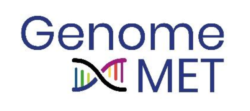
Cancer is a major burden on European society. Advances in genomics, driven by technologies such as Next Generation Sequencing (NGS) are transforming cancer care, enabling earlier and more accurate diagnosis, guiding therapy selection and driving development of targeted therapies (precision medicine), which improves patient outcomes and health system effectiveness. However, the quality and comparability of genomic profiling currently varies significantly and development of standards and metrological means to support the field are in their infancy. This project aims to address these needs by applying metrological principles to develop reference measurement systems (RMS) to support cancer genomic diagnostics in compliance with the In-vitro Diagnostic Device Regulation (IVDR EU 2017/746).
22HLT06
36 months
01 September 2023
The project has received funding from the European Partnership on Metrology, co-financed from the European Union’s Horizon Europe Research and Innovation Programme and by the Participating States
€ 1,743,000
Medical University of Graz
Istituto Nazionale di Ricerca Metrologica, Laboratoire national de métrologie et d’essais, Nacionalni Institut za Biologijo, Physikalisch-Technische Bundesanstalt, Turkiye Bilimsel ve Teknolojik Arastirma Kurumu, Commissariat à l’énergie atomique et aux énergies alternatives, Fondazione del Piemonte per l’Oncologia, INSTAND e.V. – Gesellschaft zur Förderung der Qualitätssicherung in medizinischen Laboratorien e.V., Università degli Studi di Torino, BIO RAD Laboratories, Inc., GenQA Ltd, LGC Limited, Eidgenössisches Institut für Metrologie METAS, Medicines and Healthcare Products Regulatory Agency, University of Leeds
EUCAIM
Building a Data-Driven Future for Cancer Care
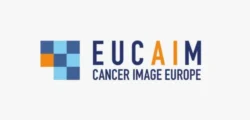
The EUropean Federation for CAncer IMages (EUCAIM) is a part of the European Commission-initiated European Cancer Imaging Initiative, which aims to foster innovation and deployment of digital technologies in cancer treatment and care to achieve more precise and faster clinical decision making, diagnostics, treatment and predictive medicine for cancer patients. EUCAIM’s aim is to build a pan-European digital federated infrastructure of cancer-related images which will be used for the development of AI tools toward precision medicine. The hope is that this infrastructure will provide the means to develop AI tools that will be able to enhance the (cancer) diagnosis procedure, treatment and the identification of the need for predictive medicine benefiting patients across Europe.
DIGITAL-2022-CLOUD-AI-02-CANCER-IMAGE – Federated European infrastructure for cancer images data
48 months
01 January 2023
101100633
€ 17,789,829.02
€ 252,680.50
BBMRI-ERIC is mainly involved in WP4 and WP5 with implementing finding/cataloging services, integration of imaging services to the dashboard and providing existing tooling for clinical data quality, WSI data/metadata quality, clinical data harmonization and pipelines for processing WSI conversions to open formats. Further contributions are in WP2, 7 and 8 with BBMRI-ERIC’s biobank-related domain knowledge
Medical University of Graz, Medial University of Innsbruck, Medical University of Vienna
European Institute for Biomedical Imaging Research, Medical University of Innsbruck, Medical University of Vienna, COCIR, KU Leuven, Radiomics, Sciennsano, German Oncology Center, Masaryk University, Euro-BioImaging ERIC, Collège des Enseignants en Radiologie de France, CNRS, French Institute for Research in Computer Science and Automation, LIMICS, Medexprim, Owkin, Charité, German Electron Synchrotron, German Cancer Research Center, Technical University of Munich, University Hospital Aachen, ELIXIR, Aristotle University of Thessaoloniki, Foundation for Research and Technology – Hellas, Hellenic Cancer Society, Italian National Research Council, Gemelli University Hospital, Istituti Fisioterapici, Ospitalieri, Istituto Nazionale Tumori Regina Elena, IFOM-Istituto Fondazione di Oncologia Molecolare, Maggioli, Neuromed, Policinico San Donato Research Hospital, Sapienza University of Rome, SYNLAB, University of Pisa, EATRIS, The EGI Foundation, Erasmus University Medical Center, Health-RI, Maastricht University, Philips, Radboud University Medical Center, The Netherlands Cancer Institute, Medical University of Gdansk, Łukasiewicz – PORT, Centro Hospitalar Universitário de Santo António, Champalimaud Foundation, Servicos Partilhados do Ministerio da Saude, University of Coimbra, Spanish National Research Council State Agency, BAHIA, Consorcio Centro de Investigacion Biomedica en Red, Centre for Genomic Regulation, Hospital Clinic de Barcelona, Instituto de Salud Carlos III, Instituto Tecnológico de Informática, IQVIA, La Fe, University and Polytechnic Hospital, MATICAL, Quibim, S2 Grupo, Andalusian Health Service, Servicio Madrileño de Salud, University of Valencia, Polytecnic University Valencia
University of Barcelona, Karolinska Institute, Linköping University, National Bioinformatics, Infrastructure Sweden, Region Västerbotten, Umeå University, Vinnova
ONCOSCREEN
A European shield against colorectal cancer

The EU project ONCOSCREEN aims towards more accurate, non-invasive, cost-effect screenings and awareness about Colorectal Cancer (CRC), being accountable for 12.4% of all deaths due to cancer, and with only 14% of EU citizens participating in screening programmes. ONCOSCREEN will develop a risk-based, population-level stratification methodology for Colorectal Cancer (CRC) to account for genetic prevalence, socio-economic status, and other factors. This methodology will be complemented by a) a set of novel low-cost screening technologies with high sensitivity and specificity, b) using AI for CRC screening for early detection of polyps and identification of a personalized risk status, and c) a mobile app for self-monitoring. Furthermore, ONCOSCREEN develops an Intelligent Analytics dashboard for policy makers facilitating effective policy making at regional and national levels. More at Cordis.Europe.eu.
HORIZON-MISS-2021-CANCER-02-01 – Develop new methods and technologies for cancer screening and early detection
48 months
01 January 2023
101097036
€ 12,972,076
Med Uni Graz € 463,250 and Med Uni Innsbruck € 338,750
Med Uni Graz leads Work Package 3 “ONCOSCREEN Advancements and Novelties on CRC Diagnostics” and is involved in several other work packages. From Med Uni Graz and Med Uni Innsbruck, several CRC datasets will be used, e.g. from the Med Uni Graz Colorectal Cancer Whole Slide Image Cohort containing 180,000 images (e.g. from H&E, immunohistochemical and Van Gieson stainings) and >10,000 CRC datasets from the ADOPT BBMRI-ERIC project. MUG will utilize its experience in AI algorithms in histopathological slides
Medical University of Graz, Medical University of Innsbruck
Firalis, Universitatsklinikum Schleswig-Holstein, Universität zu Lübeck, Lietuvos Sveikatos Mokslu Universitetas, Instituto Portugues de Oncologia do Porto Francisco Gentil, Institutul Oncologic Prof. Dr. Alexandru Trestioreanu Bucuresti, Technion – Israel Institute of Technology, Universidade do Minho, Tilburg University- Universiteit van Tilburg, Vlaamse Instelling voor Technologisch Onderzoek, Ethniko Kentro Erevnas Kai Technologikis Anaptyxis, Innovation Sprint, Scientific academy for service technology, Ainigma technologies, Catalink ltd, Konnekt able technologies ltd, Beia consult International srl, Universidad de la Rioja, time.lex, Carr communications ltd, Ministry of Health, Pagalbos Onkologiniams Ligoniams Asociacija, Europacolon Portugal- Associacao de Luta contra o cancro do Intestino, Elliniki Etaireia Ogkologias Peptikou, Europaische Vereinigung der Gastrointestinalen Onkologie (European society of digestive oncology – ESDO), Fundatia youth cancer Europe, Lietuvos Respublikos Sveikatos Apsaugos Ministerija, Ey advisory spa, Agencia estatal consejo superior de Investigaciones cientificas, Universite de Franche-Comte, Rozenbaum konsulting, Gie Axa, Association Gercor, Louwen Rogier, Sanne Voogd
MICROBE
The Microbiome Biobanking (RI) Enabler
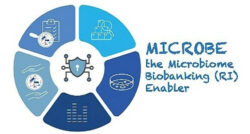
The EU project MICROBE aims to develop methods and technologies for biobanking of microbiome samples and to work out an operational framework for microbiome biobanking considering relevant data infrastructure, pre-analytical sample quality and quality control as well as the legal and ethical framework. In the respective work packages, MICROBE addresses (1) technical solutions for microbiome preservation, propagation and functionality assessment, (2) novel ecological concepts (i.e. “core microbiome” and “microbial keystone taxa”), and (3) data infrastructures. In addition, MICROBE will address essential framework issues such as (4) standardization as well as (5) ethical and legal requirements and new business opportunities. Participation of relevant European research infrastructures, i.e. BBMRI-ERIC, MIRRI, ELIXIR and EMBRC-ERIC shall ensure that community needs are properly addressed and developed solutions are efficiently taken up by the infrastructures and their communities. Long term ambition is to ensure widespread uptake in microbiome research communities and thus support the development of novel microbiome-based applications. More at Cordis.Europe.eu.
HORIZON-INFRA-2022-TECH-01-01 – R&D for the next generation of scientific instrumentation, tools and methods
48 months
01 February 2023
101094353
€ 5,804,683
€ 750,000
BBMRI.at partner Medical University of Graz is project partner and funded by the project. Med Uni Graz leads Work Package 4 “Standardization and Quality Control” (and three of four WP4 tasks), leads Task T5.2 “Evaluating liability risks for human and veterinary use of microbiomes” and contributes to many other task including T1.1 “Novel preservation tools, protocols and approaches” where Med Uni Graz is testing a cold-chain-free method for storing/transporting different microbiome specimen types.
Medical University of Graz
Austrian Institute of Technology AIT (AT, coordinator), CAB International, INRAE (FR), Helmholtz Zentrum München HMGU (DE), Deutsche Sammlung von Mikroorganismen und Zellkulturen DSMZ (DE), European Molecular Biology Laboratory EMBL (DE), Sorbonne Université (FR) and rtd services (AT)
DIOPTRA
Early dynamics screening for colorectal cancer via novel protein biomarkers reflecting biological initiation mechanisms
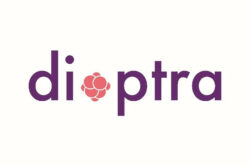
The EU project DIOPTRA aims to revolutionise Colorectal Cancer (CRC) screening via cutting-edge research towards a holistic, personalised and accessible method for early detection. The project plans to introduce an early screening and risk assessment solution for all citizens that considers risk factors and protein biomarkers to identify high-risk cases in need of colonoscopy. This non-invasive approach has the potential to significantly improve colorectal cancer screening in medical practice, expanding population screening participation. More at Cordis.Europe.eu.
HORIZON-MISS-2021-CANCER-02-01 – Develop new methods and technologies for cancer screening and early detection
48 months
01 January 2023
101096649
€ 13,646,550.50
€ 312,875
Medical University of Graz with Biobank Graz and Division of Oncology provide expertise, samples and data from CRC cases for the early biomarker discover study
Medical University of Graz (Austria)
Institute of Communication and Computer Systems (Greece – Coordinator), Martel GmbH (Switzerland), Tecreando BV (Netherlands), Sphynx Technology Solutions (Switzerland), Panepistimio Ioanninon (Greece), Smartsol SIA (Latvia), I2GROW Innovation to Grow SRL (Italy), Netcompany-Intrasoft SA (Luxembourg), Protavio Ltd (Greece), Computer Solutions Cyprus LTD, Blocks Health and Social Care EOOD (Bulgaria), Arthur’s Legal BV (Netherlands), CSI Center For Social Innovation LTD (Cyprus), Centre Hospitalier Universitaire De Liege (Belgium), UAB Teraglobus (Lithuania), Vilabs LTD (Cyprus), Region Midtjylland (Denmark), Univerzitetni Klinicni Center Maribor (Slovenia), Komiteen For Sundhedsoplysning (Denmark), Federation Europeenne des Hopitaux et des Soins de Sante (Belgium), D.Tsakalidis-G.Domalis OE (Greece), Ainigma Technologies (Belgium), Fundación Burgos por la Investigación de la Salud (Spain), Hepatogastroenterology Unit, Second Department of Internal Medicine – Propaedeutic, Medical School, National and Kapodistrian University of Athens, ‘‘Attikon” University General Hospital, Athens(Greece), Cambridge Medical Academy (United Kingdom), Linac-Pet Scan Opco Limited (Cyprus), Geniko Antikarkiniko Ogkologiko Nosokomeio Athinon O Agios Savvas (Greece)
SCIBIOEU
SCIence outreach: The example of BIObanks in EUrope

SCIBIOEU is an Erasmus+ KA2 project in Cooperation partnerships in Higher Education. It aims to develop a course focusing on the science outreach of biobanking, adapted to the need of young scientists and students of Health and Biological Departments of Higher Education Institutions (HEI). It will also develop an innovative serious game as an attractive and effective tool for the awareness of the general public in biobanking issues and a digital guideline handbook called “Best Practice Guidelines for Science Outreach”.
ERASMUS+ KA2 project in ‘Cooperation partnerships in Higher Education’ (KA220-HED)
30 months
15 December 2022
2022-1-EL01-KA220-HED-000088145
€ 400,000
€ 64,684
BBMRI.at partner Medical University of Graz is project partner and funded. Med Uni Graz leads several activities and tasks including the mapping and adaption of existing educational and public courses and events to create the SCIBIOEU online platform
Medical University of Graz
Panepistimio Dytikis Attikis, National Center for Scientific Research “Demoritos”, Accademia Euroea di Bolzano, University of Cyprus, Turun Yliopisto
canSERV
Providing Cutting Edge Cancer Research Services Across Europe
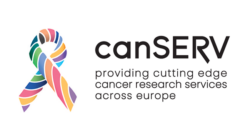
The EU project canSERV aims at making cutting-edge and customised research services available to the cancer research community EU-wide, enabling innovative R&D projects and fostering precision medicine for patients’ benefit across Europe. By connecting, coordinating, and aligning existing oncology and complimentary research infrastructures (RIs) and providing services in a synergistic way transnationally, canSERV will capitalise on the critical mass of experts and cutting-edge services offered by canSERV RIs and their extended network. canSERV brings together world-class European life science RIs (BBMRI, EURO-BIOIMAGING, ELIXIR, EU-IBISBA, EuroPDX, EU-OPENSCREEN, INSTRUCT, EATRIS, INFRAFRONTIER, EMBRC, ECRIN, EATRIS, MIRRI, ARIE, CCE, EORTC and IARC) that collectively not only cover all aspects along the development pipeline for oncology, but is also capable of interconnecting these technologies providing users a guidance for navigating them through the entire translational value chain. More at Cordis.Europe.eu.
HORIZON-INFRA-2021-SERV-01-01 – Research infrastructures services to support research addressing cancer
36 months
01 September 2022
101058620
€ 14,866,440.50
€ 602,208
BBMRI-ERIC is project coordinator. BBMRI.at partners with their biobanks are providers of transnational access to services and infrastructure (Medical University of Graz incl. Biobank Graz; Medical University of Vienna incl. Med Uni Wien Biobank; Medical University of Innsbruck incl. Biobank Innsbruck)
Medical University of Graz incl. Biobank Graz; Medical University of Innsbruck incl. Biobank Innsbruck; Medical University of Vienna incl. Med Uni Wien Biobank
canSERV brings together world-class European life science RIs (BBMRI, EURO-BIOIMAGING, ELIXIR, EU-IBISBA, EuroPDX, EU-OPENSCREEN, INSTRUCT, EATRIS, INFRAFRONTIER, EMBRC, ECRIN, EATRIS, MIRRI, ARIE, CCE, EORTC and IARC)
ISIDORe
Integrated Services for Infectious Disease Outbreak Research
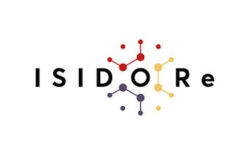
ISIDORe unites a multidisciplinary consortium of 17 European research infrastructures to offer integrated services for combatting current and future infectious disease outbreaks. ISIDORe brings together more than 150 European service providers from 32 countries. The project provides access to key services to support projects for the study of SARS-CoV-2, its variants and other potential pathogens.
HORIZON-INFRA-2021-EMERGENCY-02 Research infrastructure services for rapid research responses to COVID-19 and other infectious disease epidemics
36 months
01 February 2022
101046133
€ 20,998,624
€ 602,208
BBMRI-ERIC will be contributing to Work Package 4 on Quality for data, ELSI, training and customer satisfaction measures as well as Work Package 8 on Provision of access to clinical samples. BBMRI’s affiliated entities in WP4 are Leipzig Medical Biobank (LMB), Institut für Klinische Chemie und Laboratoriumsdiagnostik Jena (IBBJ) and UKCRC Tissue Directory and Coordination Centre, UCL. In addition, 40 BBMRI-ERIC member biobanks will be acting as service providers for WP8
HEAP
Human Exposome Assessment Platform
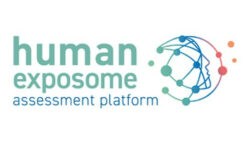
HEAP will provide a research resource for the integrated and efficient analysis of the human exposome. One primary outcome of the project is the complete process for obtaining actionable knowledge from sustainable cohorts. HEAP will launch a state-of-the-science informatics infrastructure (IaaS) composed of prime ICT resources from partner institutions in several EU countries, accessed through a software platform (PaaS) that includes the world’s fastest Hadoop platform to provide data warehousing and applied AI. The platform customised for exposome assessment will provide a decision support system for researchers, policymakers, and industry. All the data managed and processed by HEAP will be available for future research as well as the developed analyses. More at Cordis.Europe.eu.
SC1-BHC-28-2019 – The Human Exposome Project: a toolbox for assessing and addressing the impact of environment on health
RIA – Research and Innovation action
48 months
01 January 2020
EU – Horizon 2020
874662
€ 11,996,515
Medical University of Graz funded
Medical University of Graz
Karolinska Institutet (KI) (Sweden), Statens Serum Institut (Denmark), CSC – IT Center for Science (Finland), Logical Clocks (Sweden), University of Innsbruck (UIBK) (Austria), Stichting MLC Foundation (Netherlands), Interdisciplinary Centre for Mathematical and Computational Modelling (ICM), University of Warsaw (Poland), The Pirkanmaa Hospital District (TAUH) (Finland), The International Agency for Research on Cancer (IARC) (International Organization), he University of Oulu (Finland)
IDE@S
Innovative Data Environment @ Styria
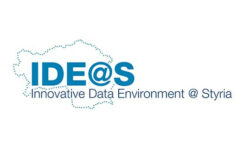
The overarching goal of IDE@S is the development of a concept for a Styrian reference model for the collaborative use of large amounts of data. In addition, IDE@S should increase the visibility of Styria in the data science landscape of the EU.
Specific tasks to reach this goal are: mapping of existing infrastructure and services for research data from science and industry, and vision for further development; to identify ways to educate staff and propose guidelines for safe handling of data; design and construction of a governance structure around the technical infrastructure and services; initial planning for the construction and installation of a demonstrator based on locally existing and future necessary infrastructure for the connection to European initiatives (EOSC, EuroHPC).
2020-2022
Land Steiermark / County of Styria
GZ: ABT08-24920
€ 143,151
Medical University of Graz
Graz University of Technology, University of Graz, FH Joanneum
BIGPICTURE
European Platform & central repository for digital pathology
The mission of the EU-funded BIGPICTURE project is to establish the first European platform where quality-controlled whole slide imaging (WSI) data are stored. The consortium consists of Europe’s largest pathology departments and will work towards an open-source framework for accessing, annotating and mining WSI data using AI algorithms. With access to millions of WSI data, BIGPICTURE envisions AI-based methods that can help clinicians interpret tissue features and perform diagnosis fast, in a high-throughput manner, avoiding human bias or error. More at Cordis.Europe.eu.
IMI2-2019-18-01 – Central repository of digital pathology slides to support the development of artificial intelligence tools
IMI2-RIA – Research and Innovation action
72 months
01 Febuary 2021
EU – Horizon 2020
945358
€ 32,319,825
Medical University of Graz funded, coordinator
Medical University of Graz, Medical University of Vienna
Stichting Katholieke Universiteit, Linkopings Universitet, The Leeds Teaching Hospitals National Health Service Trust, Universitair Medisch Centrum Utrecht, CSC-Tieteen Tieto Tektniikan Keskus OY, Uppsala Universitet, Fraunhofer Gesellschaft zur Förderung der Angewandten Forschung, Haute Ecole Specialisee de Suisse Occidentale, Technische Universiteit Eindhoven, Azienda Ospedaliera per L’Emergenza Cannizzaro, The University of Warwick, Technische Universität München, Institut Pasteur, Universite de Liege, Semmelweis Egyetem, Stichting het Nederlands Kanker Instituut – Antoni van Leeuwenhoek Ziekenhuis, Biobanks and Biomolecular Resources Research Infrastructure Consortium (BBMRI-ERIC), DIN Deutsches Institut für Normung eV, Ostergotlands Lans Landsting, The European Institute for Innovation through Health Data, Helsingin ja Uudenmaan Sairaanhoitopiirin Kuntayhtymä, Philipps Universitaet Marburg, European Society of Pathology Digital Pathology Association inc, GBG Forschungs GmbH, TTopstart BV, Sectra AB, Cytomine, Stichting Lygature, Owkin France, Deciphex Limited, Phit BV, Time.Lex, Novartis Pharma AG, Janssen Pharmaceutica NV, Bayer Aktiengesellschaft, Boehringer Ingelheim International GmbH, Novo Nordisk A/S, Pfizer Ltd, F. Hoffmann-La Roche AG, Sanovi-Aventis Recherche & Developpment, Institut de Recherches Internationales Servier Iris, UCB Biopharma SRL
SARS-CoV-2 / COVID-19

Several SARS-CoV-2 virus variants were/are cultivated in the BSL-3 laboratory of Med Uni Graz and used for a wide range of functional studies. Issues dealt with include the testing of antiviral drugs, testing of antibodies, testing of nasal sprays and natural substances, development and validation of diagnostics, testing and development of procedures for virus inactivation and reprocessing of protective equipment. For this, virus neutralization assays as well as the latest technologies such as in-situ transcriptome analyzes and organoid and organ cultures are used.
2020-2024
Med Uni Graz, Med Uni Wien, Uni-Graz, acib, FFG, MEFO
Medical University of Graz (Diagnostics and Research Institute of Pathology; Diagnostics and Research Institute for Hygiene, Microbiology and Environmental Medicine; Biobank Graz), Medical University of Vienna
Ludwig Boltzmann Institut für Lungengefäßforschung, University Graz, acib, Max Plack Institute for Molecular Genetics Berlin, various companies
Instand-NGS4P
Integrated and Standardized NGS Workflows for personalised therapy

NSTAND-NGS4P is an EU-funded Pre-Commercial Procurement (PCP) project for improving cancer patients’ benefit from Next Generation Sequencing (NGS) by developing an integrated and standardized NGS workflow. For this, it will compile information from cancer gene testing, pharmacogenetics testing and e-medication in proper presentation to medical doctors for supporting therapy decision making at bedside widely applicable in health systems. More at Cordis.Europe.eu.
SC1-BHC-10-2019 – Innovation Procurement: Next generation sequencing (NGS) for routine diagnosis
PCP – Pre-Commercial Procurement
65 months
01 January 2020
EU – Horizon 2020
874719
€ 10,998,128.16
Medical University of Graz funded, coordinator
Medical University of Graz
University of Florence, ERASMUS University Medical Centre, University of Milano-Bicocca, University Clinics of Schleswig-Holstein, St. Anna Children´s Cancer Research Institute, Centre Leon Bérard, Italian Patient Association (FAVO), European Cancer Patient Coalition, German Institute of Standardisation, Technical University of Munich, University of Ljubljana, University of Manchester, University of Liverpool, Organisation of European Cancer Institutes, University of Helsinki, BioXPedia, International Prevention Research Institute
CY-Biobank
Center of excellence – biobanking and the Cyprus human genome project
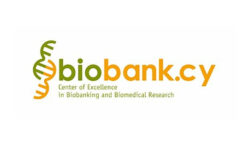
The CY-Biobank project revolves around the upgrading of the existing Biobank of the University of Cyprus, to a Center of Excellence in Biobanking and Biomedical Research, adapting European standards of operation in collaboration with the Advanced Partners. This medical research infrastructure will then serve the foundation for developing the Cyprus human genome project and other genomics/genetics projects for diseases with Mendelian inheritance as well as complex disorders of multifactorial character that impact modern societies. More at Cordis.Europe.eu.
Towards the Establishment of a Research and Innovation Center of Excellence for Biobanking and Biomedical Research at the University of Cyprus
CSA – Coordination and Support Actions
84 months
01 October 2019
EU Horizon 2020, Teaming 2
857122
€ 14,999,975
Medical University of Graz funded
Medical University of Graz (Diagnostics and Research Institute of Pathology; Biobank Graz/International Biobanking Education)
University of Cyprus, Biobanks and Biomolecular Resources Research Infrastructure Consortium (BBMRI-ERIC), RTD Talos Limited
EASI-Genomics
European Advanced InfraStructure for Innovative Genomics
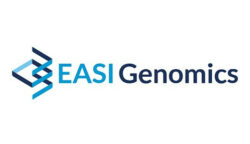
The mission of EASI-Genomics is to provide easy and seamless access to cutting-edge DNA sequencing technologies to researchers from academia and industry, within a framework that ensures compliance with ethical and legal requirements, as well as fair and secure data management. More at Cordis.Europe.eu.
H2020, EASI-Genomics, INFRAIA-01-2018-2019 European Advanced InfraStructure for Innovative Genomics
RIA – Research and Innovation action
56 months
01 Febuary 2019
EU Horizon 2020
824110
€ 9,991,267
Medical University of Graz funded, coordinates the WP “Innovation, Training and Outreach”: Outreach to the different stakeholders to transfer knowledge and consult with them about their future needs and interests, develop and organize workshops and seminars to train the new generation of users; creation of a community platform as a meeting point where users, providers, suppliers, but also funders and policy makers can exchange information about challenges and opportunities; promotion of the generation of Expert Centres, as public-private partnerships to support innovation and sustainability
Medical University of Graz
Fundacio Centre de Regulacio Genomica, Commissariat a L’Energie Atomique et aux Energies Alternatives, Christian-Albrechts-Universität zu Kiel, Max Delbrueck Centrum für Molekulare Medizin in der Helmholtz-Gesellschaft, Katholieke Universiteit Leuven, Stockholms Universitet, Uppsala Universitet, Kungliga Tekniska Hoegskolan, Deutsches Krebsforschungszentrum Heidelberg, Institut National de la Sante et de la Recherche Medicale, European Molecular Biology Laboratory, Tartu Ulikool, Charite – Universitätsmedizin Berlin, LGC Limited, Qiagen GmbH
METAFORIS
Making Europe through and for its research infrastructures
In the project ‘Making Europe through and for its research infrastructures’ (METAFORIS), a collaboration between the STS department of the University of Vienna and the Munich Center for Technology in Society (MCTS) at TU Munich, the partners explore how European integration and European science have co-produced each other. They do this by looking at four eminent Transnational European Research Infrastructures (TERIs) in different scientific fields, established at different moments in time: Centre Européen pour la Recherche Nucléaire (CERN; established in 1954); European Space Agency (ESA; 1975), Laserlab Europe (LLE; 2001); Biobanking and BioMolecular Research Infrastructure (BBMRI; 2008). Aim is to analyze how each infrastructure embodied a distinct vision for European integration, and how, conversely, these research infrastructures were powerful vehicles to advance integration. The Project will thus explore how changing imaginations of Europe since World War II affected the foundation, the institutional forms and societal positioning of TERIs.
2019 – 2022
Austrian FWF and German DFG
University of Vienna
Munich Center for Technology in Society (MCTS) of TU Munich: Sebastian Pfotenhauer, Zinaida Vasilyeva, and Oguz Özkan
HDHL-INTIMIC
A Healthy Diet for a Healthy Life – Knowledge Platform on Food, Diet, Intestinal Microbiomics and Human Health

Over 2 billion people in this world are overweight and the associated costs are 1.2 trillion dollar per year. At the same time, the population in many countries is ageing, which increases the incidence of malnutrition. This leads to underweight and micro nutrient deficiencies. lf no action is taken, diet-related diseases are expected to increase rapidly in the next decade, stretching health systems to the breaking point. In the JPI HDHL, 20 countries from within and outside of Europe are working on a programmed approach to align national R&I strategies and to fund new research, in order to facilitate true understanding of the relationship between diet, physical activity and health.
HDHL-INTIMIC (INtesTInal MICrobiomics) aims to coordinate national and regional programmes in the area of diet, intestinal microbiomics and health as well as nutrition and health in general, thereby contributing to the implementation of JPI HDHL objectives.
2019 – 2022
Federal Ministry of Education, Science and Research (BMBWF)
Medical University of Graz and Medical University of Vienna funded; they jointly manage work package 5, ‘Networking and training’, which organizes internal and external communication, one of the central tasks of the project
Medical University of Graz, Medical University of Vienna, University of Veterinary Medicine
Karl-Franzens University Graz, Sigmund-Freud Private University Vienna and 42 other European partners
ERINHA-Advance
Advancing European Research Infrastructure on Highly Pathogenic Agents
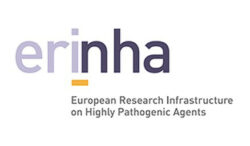
High-risk pathogens are of increasing relevance as triggers of dangerous infectious diseases and pandemics. ERINHA is a pan-European distributed Research Infrastructure dedicated to the study of high-consequence emerging and re-emerging pathogens. It connects high security (BSL-4 and BSL3) facilities with longstanding experience of research in the field of highly infectious diseases. The over-arching goal of ERINHA is to provide capacities to conduct projects which are broad in scope, ambition and require a range of capabilities that no single facility or even country can provide on its own. Such a coordinated approach is vital in a context marked by frequent globalization of infectious diseases with high risk for public health, society and economy. More at Cordis.Europe.eu. At Med Uni Graz, the participation in ERINHA has enabled the establishment of a BSL-3 laboratory with the currently highest safety standard in Austria and thus created the prerequisites for numerous research projects related to SARS-CoV-2.
H2020-INFRADEV-2018-1 Advancing European Research Infrastructure on Highly Pathogenic Agents
RIA – Research and Innovation action
42 months
01 January 2019
EU Horizon 2020
824061
€ 3.746.804,14
Medical University of Graz funded
Medical University of Graz
European Research Infrastructure on Highly Pathogenic Agents, Institut National de la Sante de la Recherche Medicale, Instituto Nacional de Saude Dr. Ricardo Jorge, Folkhalsomyndigheten, Nemzeti Nepegeszsegugyi Kozpont, Istituto Nazionale per le Malattie Infettive Lazzaro Spallanzani-Instituto di Ricovere e Cura a Carattere Scientifico, INSERM Transfert SA, Karolinska Institutet, Katholieke Universiteit Leuven, Bernhard-Nocht-Institut für Tropenmedizin, ERASMUS Universitair Medisch Centrum Rotterdam
CONCEPTION
Continuum of Evidence from Pregnancy Exposures, Reproductive Toxicology and Breastfeeding to Improve Outcomes Now
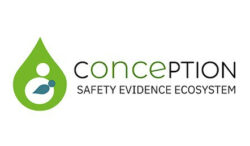
ConcePTION will build an ecosystem for better monitoring and communicating of medication safety in pregnancy and lactation: validated and regulatory endorsed workflows for fast, optimised evidence generation. More at Cordis.Europe.eu.
IMI2-2017-13-09
IMI2-RIA Research and Innovation action
69 months
01 April 2019
EU – Horizon 2020
821520
€ 15,299,991
Medical University of Graz funded
Medical University of Graz
EJP RD
European Joint Programme on Rare Diseases
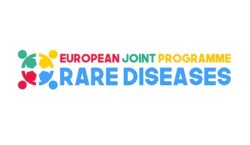
The European Joint Programme on Rare Diseases brings over 130 institutions from 35 countries to create a comprehensive, sustainable ecosystem allowing a virtuous circle between research, care and medical innovation.
Its aims are to improve the integration, the efficacy, the production and the social impact of research on RD through the development, demonstration and promotion of Europe/world-wide sharing of research and clinical data, materials, processes, knowledge and know-how; and to implement and further develop an efficient model of financial support for all types of research on RD (fundamental, clinical, epidemiological, social, economic, health service) coupled with accelerated exploitation of research results for benefit of patients. More at Cordis.Europe.eu.
SC1-BHC-04-2018
CSA – Coordination and support action
68 months
01 January 2019
EU Horizon 2020
825575
€ 55,582,724.77
Medical University of Graz funded
Medical University of Graz
EOSC-LIFE
Providing an open collaborative space for digital biology in Europe
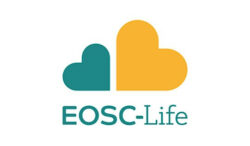
EOSC-Life brings together the 13 Biological and Medical ESFRI research infrastructures (BMS RIs) to create an open collaborative space for digital biology. EOSC-Life will publish FAIR data and a catalogue of services for the management, storage and reuse of data in the European Open Science Cloud (EOSC). The project also implements interdisciplinary workflows for life scientists. Via open calls, researchers and project consortia can work with the European Life Science Research Infrastructures and their technical experts to bring their data, tools and workflows into the cloud. Finally, EOSC-Life addresses policies for human research data under GDPR with standards for data provenance and reproducibility, opening a route to set up registries for clinical trial data. More at Cordis.Europe.eu.
INFRAEOSC-04-2018; Connecting ESFRI infrastructures through Cluster projects
RIA – Research and Innovation action
54 months
01 March 2019
EU Horizon 2020
824087
€ 26,145,996.25
Medical University of Graz funded
Medical University of Graz
HRSM Inter-university infrastructure for digital pathology
“Digital transformation in higher education”: Joint platform of Austrian medical universities for interactive image-based teaching

Histological sections contain detailed information about disease processes, which is essential for medical research and diagnosis of diseases. Advances in the digitization of histological sections and machine learning make it possible to analyze digital information from complex images of tissue sections. For this purpose, a national inter-university digital pathology infrastructure is to be set up, which will involve the medical universities in Graz, Vienna and Innsbruck as well as the University of Veterinary Medicine Vienna.
2017-2021
Federal Ministry of Education, Science and Research; Hochschulraumstrukturmittel (HRSM)
Medical University of Graz funded
Medical University of Graz, Medical University of Vienna, Medical University of Innsbruck, University of Veterinary Medicine, Medical faculty of the Johannes Kepler University Linz
SPIDIA4P
SPIDIA for Personalized Medicine – Standardisation of generic Pre-analytical procedures for Invitro DIAgnostics for Personalized Medicine
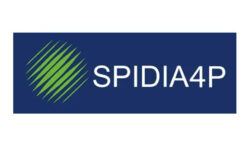
Molecular in vitro diagnostics and biomedical research have allowed great progress in personalised medicine but further progress is limited by insufficient guidelines for pre-analytical workflow steps (sample collection, preservation, etc.) as well as by insufficient quality assurance of diagnostic practice. This allows using compromised patients’ samples with post collection changes in cellular and extra-cellular biomolecules’ profiles thus often making diagnostic test results unreliable or even impossible. Thus, SPIDA4P aims to generate and implement a comprehensive portfolio of 22 pan-European pre-analytical CEN/TS and ISO/IS, addressing the important pre-analytical workflows applied to personalized medicine. More at Cordis.Europe.eu.
SC1-HCO-02-2016
CSA – Coordination and support action
54 months
01 January 2017
EU Horizon 2020
733112
€ 1,999,972.50
Medical University of Graz funded; leader of Work Package 3 “Implementation and Dissemination of Standards & External Quality Assurance Schemes” with 21 tasks; leader of the development of ISO 20166-4:2021 Molecular in vitro diagnostic examinations — Specifications for preexamination processes for formalin-fixed and paraffin-embedded (FFPE) tissue — Part 4: In situ detection techniques; leader of the development CEN/TS 17626:2021 Molecular in vitro diagnostic examinations – Specifications for pre-examination processes for human specimen – Isolated microbiome DNA
Medical University of Graz
QIAGEN GmbH, LGC Limited, Technische Universitaet Muenchen, DIN Deutsches Institut fuer Normung E.V. (on behalf of CEN), Preanalytix Gmbh, Inivata Ltd, Cambridge Protein Arrays Ltd. TATAA Biocenter Ab, Universita degli Studi Di Firenze, Consorzio Interuniversitario Risonanze Magnetiche di Metallo Proteine, Universita Degli Studi Di Trieste, Universita Degli Studi Di Torino, Biobank & Biomolecular Resources Research Infrastructure), Integrated Biobank of Luxembourg (Luxembourg Institute of Health), Institut National de la Sante et de la Recherche Medicale, Erasmus Universitair Medisch Centrum Rotterdam, Fundacio Centre De Regulacio Genomica, Fondazione IRCCS Istituto Nazionale dei Tumori
CODEX4SME
Companion diagnostics expedited for small and medium-sized businesses
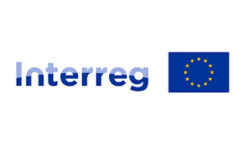
The Interreg project Codex4SMEs (Companion diagnostics expedited for small and medium-sized businesses) project plans to improve healthcare by enhanced adoption of Personalized Medicine in North-West Europe. The objective is to establish a network, which supports SMEs along the value chain of Companion diagnostics (Cdx) development. Interreg is part of the structural and investment policy of the European Union, which supports cross-border cooperation between regions and cities.
2017-2023
EU Interreg-Nord-West-Europa-Programms (INTERREG NWE)
€ 4,180,000 (from EU € 2,500,000)
Medical University of Graz/Biobank Graz funded
Medical University of Graz – Biobank Graz
BOM Holding BV (NL), Innovation and Management Centre Limited T/A WestBIC (IE), InnovationQuarter (NL), Medicen Paris Region (FR), Integrated BioBank of Luxembourg (LU), EIT Health Germany GmbH (DE), European Research Infrastructure for Translational Medicine (NL), FlandersBio (BE)
ADOPT BBMRI-ERIC
ImplementAtion anD OPeration of the gateway for healTh into BBMRI-ERIC
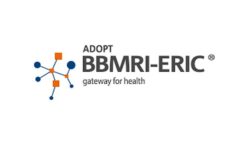
“BBMRI-ERIC: the Biobanking and BioMolecular resources Research Infrastructure – European Research Infrastructure Consortium”, aims to establish, operate and develop a Pan-European distributed research infrastructure in order to facilitate the access to biological resources as well as facilities and to support high quality biomolecular and biomedical research. The ADOPT BBMRI-ERIC proposal aims at boosting and accelerating implementation of BBMRI-ERIC and its services. Its main deliverables are designed to complete or launch the construction of key Common Services of the Research Infrastructure as required for ESFRI-projects “under implementation”, reflecting the targets of the European Research Area (ERA). More at Cordis.Europe.eu.
H2020-INFRADEV-3-2015
RIA – Research and Innovation action
42 months
01 October 2015
EU Horizon 2020
676550
€ 4,949,448.90
Medical University of Graz funded
Medical University of Graz
CORBEL
Coordinated Research Infrastructures Building Enduring Life-science services
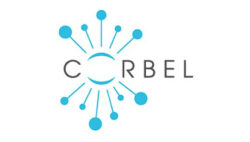
The social and economic challenges of ageing populations and chronic disease can only be met by translation of biomedical discoveries to new, innovative and cost effective treatments. The ESFRI Biological and Medical Research Infrastructures (BMS RI) underpin every step in this process; effectively joining scientific capabilities and shared services will transform the understanding of biological mechanisms and accelerate its translation into medical care. More at Cordis.Europe.eu.
H2020 INFRADEV-4
RIA – Research and Innovation action
57 months
01 September 2015
EU Horizon 2020
654248
€ 14,837,800
Medical University of Graz funded
Medical University of Graz
RD-CONNECT
An integrated platform connecting registries, biobanks and clinical bioinformatics for rare disease research

Despite examples of excellent practice, rare disease (RD) research is still mainly fragmented by data and disease types. Individual efforts have little interoperability and almost no systematic connection between detailed clinical and genetic information, biomaterial availability or research/trial datasets.
By developing robust mechanisms and standards for linking and exploiting these data, RD-Connect will develop a critical mass for harmonisation and provide a strong impetus for a global “trial-ready” infrastructure ready to support the IRDiRC goals for diagnostics and therapies for RD in close collaboration with the successful A/B projects. It will build on and transform the current state-of-the-art across databases, registries, biobanks, bioinformatics, and ethical considerations to develop a quality-assured and comprehensive integrated hub/platform in which complete clinical profiles are combined with -omics data and sample availability for RD research. The integrated, user-friendly RD-Connect platform, built on efficient informatics concepts already implemented in international research infrastructures for large-scale data management, will provide access to federated databases/registries, biobank catalogues, harmonised -omics profiles, and cutting-edge bioinformatics tools for data analysis. All patient data types will be linked via the generation of a unique identifier (“RD-ID”) developed jointly with the US NIH. The RD-Connect platform will be one of the primary enablers of progress in IRDiRC-funded research and will facilitate gene discovery, diagnosis and therapy development. RD-Connect has the RD field at its heart and brings together partners with a strong track record in RD research (gene discovery and development of innovative treatments), as well as committed IRDiRC funding partners and representatives of all major international RD initiatives (EU/US/AU/JP) spanning patient organisations, research and public health, to maximise impact to RD patients. More at Cordis.Europe.eu.
FP7-HEALTH-2012-INNOVATION
SP1 Collaboration
72 months
01 November 2012
EU FP7-HEALTH
305444
€ 11,997,111
Medical University of Graz funded
Medical University of Graz
BBMRI-LPC
Biobanking and Biomolecular Resources Research Infrastructure – Large Prospective Cohorts
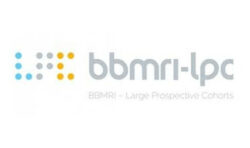
In recent years, biomedical research has crossed international borders in large, collaborative studies showing the value of multidisciplinarity and scale advantage. This has yielded valuable insights and some led to new and better medicines and treatments for diseases. However, disease-focused studies provide less insight in the real disease onset, the relative disease burden in the population, and the actual comparability of selected patients. Large prospective cohort (LPC) studies following up initially healthy participants for years or decades are considered more reliable and different diseases can be studied. LPC studies require large numbers of subjects which are costly but particularly benefited from the advent of high throughput techniques providing opportunities for powerful study designs. This project unites the large study sets of the European Biobanking and Biomolecular Research Infrastructure (BBMRI) and the International Agency for Research on Cancer (IARC), thus achieving a worldwide unique scale of integration. More at Cordis.Europe.eu.
INFRA-2012-1.1.9
CP-CSA-Infra – Combination of CP and CSA
57 months
01 February 2013
EU FP7-INFRASTRUCTURES
313010
€ 8,000,000
Medical University of Graz funded
Medical University of Graz
B3AFRICA
Bridging Biobanking and Biomedical Research across Europe and Africa
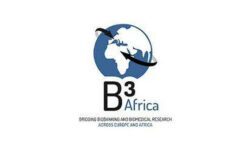
B3Africa – Bridging Biobanking and Biomedical Research across Europe and Africa will dramatically improve and facilitate the development of better predictive, preventive and personalized healthcare worldwide. The rapidly evolving African biobanks are an invaluable resource: The African population has the greatest genomic diversity on the planet and represents an incredible resource of information to advance biomedical research. B3Africa aims to implement a cooperation platform and technical informatics framework for biobank integration between Africa and Europe. The collaboration harmonizes the ethical and legal framework, biobank data representation and bioinformatics pipelines for sharing data and knowledge among biobanks and allowing access for researchers from both continents. More at Cordis.Europe.eu.
INFRASUPP-6-2014
CSA – Coordination and support action
39 months
01 July 2015
EU – Horizon 2020
654404
€ 2,001,250
Medical University of Graz funded
Medical University of Graz


